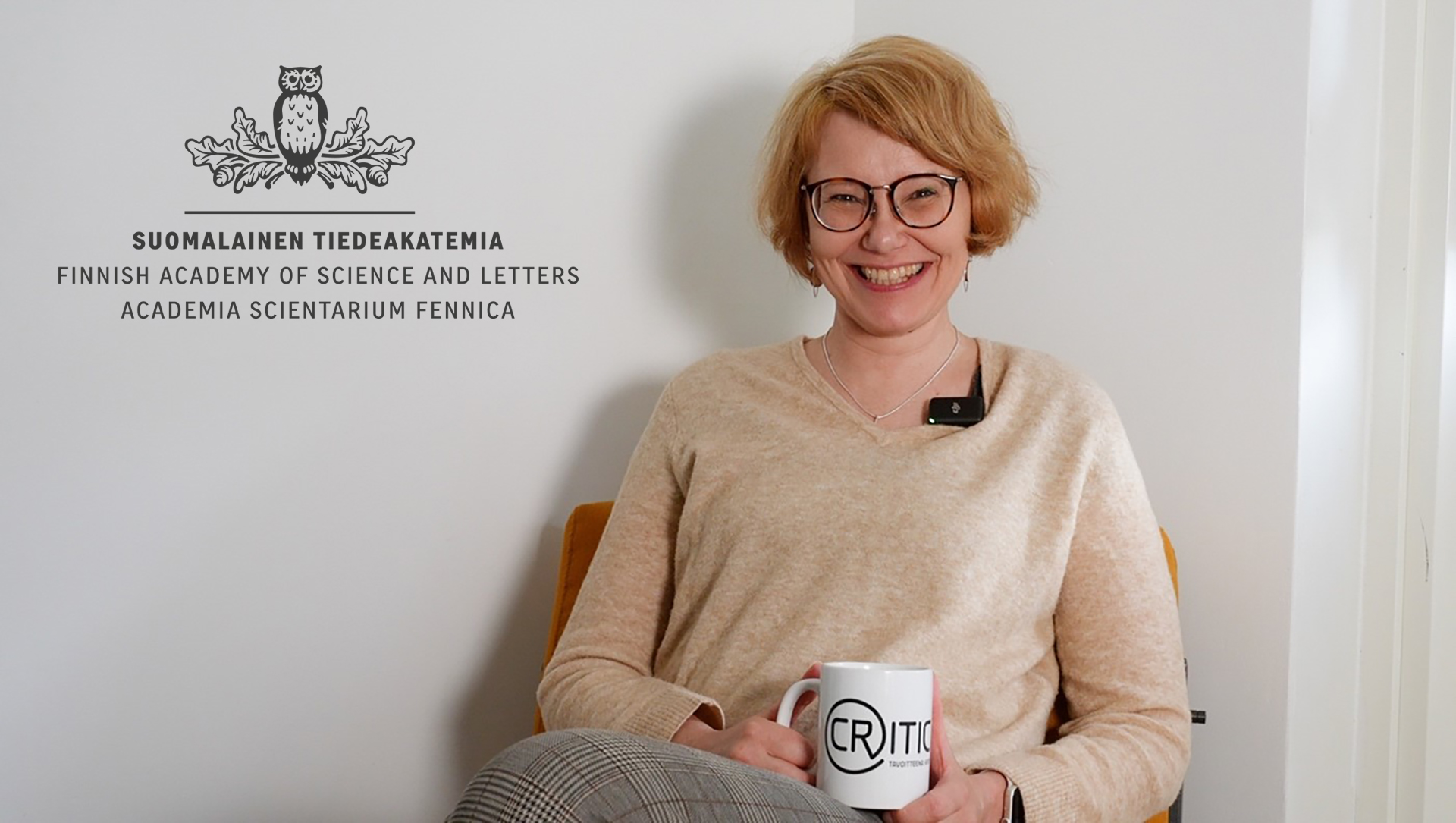The Prize for the Humanities is awarded to a scholar of humanistic sciences in the beginning of their career, who has already earned international renown. Prize 2022 was awarded to Academy Research Carita Kiili.
Carita Kiili earned her doctorate in education at the University of Jyväskylä in 2012. Her dissertation Online Reading as an Individual and Social Practice examined the way upper secondary school students search for, evaluate, and process information online when writing a paper by themselves or with a partner.
At present, Kiili is working as an Academy Research Fellow and an Assistant Professor on the first level of the tenure track at the University of Tampere. She is also a Docent of the Faculty of Education at the University of Lapland with a particular focus on digital literacy. Before moving to the University of Tampere, Kiili worked as a University Researcher at the Universities of Jyväskylä and Oslo.
“I became a researcher because working on my thesis sparked an interest in research. Even though I spent several years working in other areas, this interest never faded. I did my thesis on reading strategies used for foreign languages. I was interested in reading research, and eventually I became an online literacy researcher”, Carita Kiili says.
Kiili’s research has focused on digital literacy and its improvement. She has examined exploratory online reading, the critical evaluation of online texts, and multimodal literacy. Kiili’s five-year (2020–2024) Academy Research Fellow project “Educating Critical Online Readers” is studying the skills that comprise critical online reading and developing methods that could be used to assess and support critical online literacy.
Kiili is heading the work carried out at the University of Tampere as part of the CRITICAL project, which aims to develop technological and social innovations for the development of critical literacy in the online in the age of the Internet. The team led by Kiili is examining how pupils and students of different ages are able to evaluate the reliability of various online texts. This research will be used to develop teacher training further. Based on her research, Kiili is also developing educational materials and methods to support digital literacy, and she has taken an active role in national and international work on literacy.
Kiili is also leading a subproject at the University of Tampere that is part of the international “Empowering Schools in Self-regulation of Media and Information Literary Processes” project funded by the European Media and Information Fund, and she is the head of the Educating for Future Literacies Research Group (EduLit) at the University of Tampere.
“Scientific activities often comprise inspiring elements. The development of new ideas is one of the most important of such elements, whether related to a new idea for research or smaller insights that may occur in different stages of research. The great thing about research is the fact that the researchers are genuinely interested in their work. I am also inspired when teachers tell us that they find our research or the teaching methods and materials we have developed beneficial”, Kiili says.
“My goal in the future is to strengthen the activities of our EduLit research group such that we are able to conduct effective and long-term research together with our international partners. Our goals include, among other things, the development of research-led teaching of critical online reading and the related teacher training.”

